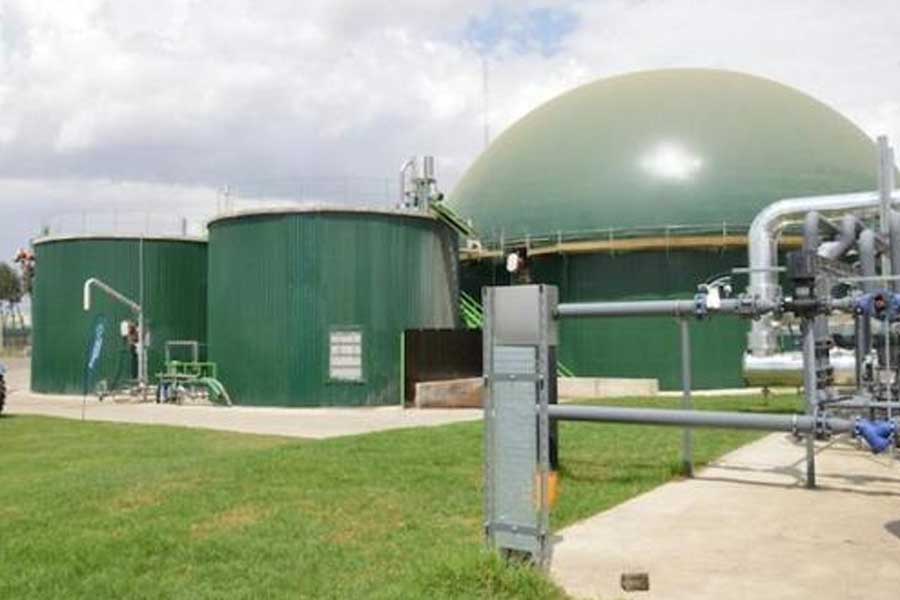
Radar | Jun 29,2019
The Ethiopian Commodity Exchange (ECX) is set to see the number of agricultural commodities traded on its floor beginning next week. The second increase in a year, adding lupin beans, cardamom, and frankincense will push the Exchange's trade portfolio to 20.
Experts from the ECX and the ministries of Agriculture and Trade undertook a study a year ago, assessing the feasibility of incorporating the commodities. The findings were presented to ECX, which gave the green light recently, Netsanet Tesfaye, corporate communications manager, told Fortune.
The Exchange saw nearly 570,000tns of commodities valued at over 36.5 billion Br traded on its floor over the first 10 months of last year. Coffee accounted for more than a third, and sesame a little less than 32pc. Soybean followed at 14pc of the total. Run by the fourth and current Chief Executive Officer (CEO), Wondimagegnehu Negara, who assumed the position in 2017, annual trade volume reached 615,000tn two years ago, worth 39.6 billion Br.
Officials hope to see the additions improve the production and marketing of these commodities, burdened by high transaction costs due to the heavy involvement of intermediaries.
Arega Shumete (PhD), a senior researcher and member of the Ethiopian Economic Association, observes incorporating the commodities will encourage exports and offer farmers better lucrative deals.
"The commodities will be commercialised rather than produced for self-consumption," he said.
Frankincense, in particular, has seen export revenues dip in recent years due to the militarised conflict in the north, where the Tigray and Amhara regional states account for the bulk of production. The state-owned Ethiopian Agricultural Businesses Corporation earned close to 2.2 million dollars from the export of incense over the first three quarters of the last financial year. It was 200,000 dollars more than exports the year before, but only a fraction of close to 12 million dollars in revenues seven years ago.
Private exporters have seen business slow as well.
Incorporated 15 years ago with a registered capital of one million Birr, Dawunt Trading Plc exports agricultural commodities such as oilseeds and incense to China, Europe, and the Middle East. Last year, the company exported 500tns of incense, generating close to three million dollars.
"Forex earnings dropped by half," said Fasil Melesse, general manager and major shareholder.
He blamed the drop in volume from suppliers for the slump.
Domestic lupin bean (gibto in Amharic) production occurs in the Amhara Regional State. ECX experts took samples of the commodity from two zones in the regional state, and Awi Zone in the Benishangul-Gumuz Regional State, before introducing it to the trading floor. Officials have also agreed with farmers' unions for the supply of lupin beans to be traded through the platform.
The leaders of Merkeb Union, comprising 140 cooperatives and 12,000 farmers, are among those that have agreed to trade lupin beans through the ECX. Union leaders are optimistic that the deal will enable members to sell their crops in large volumes.
"We've discussed the advantages of trading through the platform," said Getachew Eshetu, general manager.
Close to 3.5 million smallholder farmers trade their crops through the ECX.
ECX officials introduced four commodities – black pepper, fenugreek, black cumin seeds, and coriander – to the floor last February. Eleni Gebremedhin (PhD), the Exchange's founding CEO, launched operations in 2008 with three commodities traded, growing to five in four years.soil mapping.
PUBLISHED ON
Oct 01,2022 [ VOL
23 , NO
1170]

Radar | Jun 29,2019

Fortune News | Feb 02,2019

Radar | Jan 28,2023

Radar | Apr 21,2024

Radar | Oct 01,2022

Radar | Dec 14,2019

Radar | Apr 24,2023

Radar | Jan 05,2019

Radar | Apr 08,2024

Fortune News | Feb 26,2022

Dec 22 , 2024 . By TIZITA SHEWAFERAW
Charged with transforming colossal state-owned enterprises into modern and competitiv...

Aug 18 , 2024 . By AKSAH ITALO
Although predictable Yonas Zerihun's job in the ride-hailing service is not immune to...

Jul 28 , 2024 . By TIZITA SHEWAFERAW
Unhabitual, perhaps too many, Samuel Gebreyohannes, 38, used to occasionally enjoy a couple of beers at breakfast. However, he recently swit...

Jul 13 , 2024 . By AKSAH ITALO
Investors who rely on tractors, trucks, and field vehicles for commuting, transporting commodities, and f...

Jul 5 , 2025
Six years ago, Ethiopia was the darling of international liberal commentators. A year...

Jun 28 , 2025
Meseret Damtie, the assertive auditor general, has never been shy about naming names...

Jun 21 , 2025
A well-worn adage says, “Budget is not destiny, but it is direction.” Examining t...

Jun 14 , 2025
Yet again, the Horn of Africa is bracing for trouble. A region already frayed by wars...